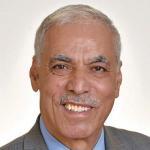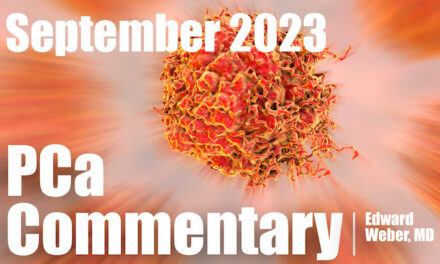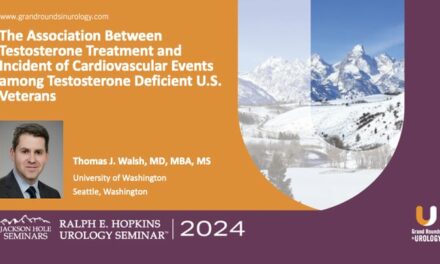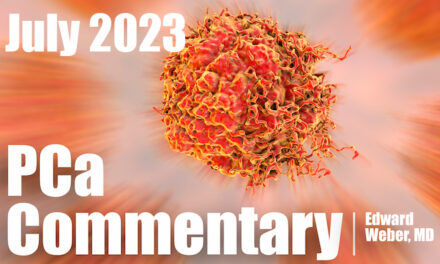Abdulmaged M. Traish, MBA, PhD, presented “Should ‘Age-Related’ Testosterone Deficiency (TD) Be Treated?” during the 32nd Annual International Prostate Cancer Update (IPCU32) conference on March 8, 2022, in Snowbird, Utah.
How to cite: Traish, Abdulmaged M. “Should ‘Age-Related’ Testosterone Deficiency (TD) Be Treated?” March 8, 2022. Accessed May 2025. https://grandroundsinurology.com/should-age-related-testosterone-deficiency-td-be-treated/
Should “Age-Related” Testosterone Deficiency (TD) Be Treated? – Summary
Abdulmaged M. Traish, MBA, PhD, Research Director at The Institute for Sexual Medicine and Emeritus Professor of Urology, both at Boston University School of Medicine in Boston, MA, discusses what he calls a fundamental question—whether age-related testosterone deficiency (TD) should be treated. Dr. Traish questions why the U.S. Food and Drug Administration (FDA) opposes testosterone (T) therapy in older men with TD but not in men with classical hypogonadism and asks whether T therapy in older men with TD produces significant health benefits. He cites resolutions of the International Expert Consensus Conference that state the negative effects of TD on human health and quality of life are well-demonstrated, including signs, symptoms, metabolic syndrome, obesity, and increased mortality. Dr. Traish cites trials in the U.S. and in Australia that indicate that T therapy does, indeed, produce significant health benefits to older men without classical TD. He shares evidence of these significant health benefits (that include no increased cardiovascular events or prostate cancer risks and fewer hospitalizations) and highlights data indicating the positive effect of T therapy on sexual function in men and data indicating that T therapy significantly increased volumetric bone mineral density (vBMD) and strength in older men with low T. Further, he shares data illustrating that T therapy has a role in slowing the development of, and in some cases reversing, type-2 diabetes. Dr. Traish then asserts that the FDA has made an artificial distinction between diagnoses where they indicate T treatment is warranted (classical hypogonadism) and where they indicate it is unwarranted (age-related hypogonadism); he states that this distinction is not clinically or scientifically meaningful and that the FDA is unable to demonstrate that one group differs from the other in terms of benefits or risks of T treatment. Further, he points out that there is no evidence that men with age-related TD respond differently to treatment than do those with classical TD. Dr. Traish highlights the fact that professional societies do not recognize age restrictions for T therapy. Dr. Traish concludes by revisiting his initial question of whether age-related TD merits treatment, to which he states that it does, respectfully disagreeing with the FDA position.
About the 32nd Annual International Prostate Cancer Update (IPCU32):
Presented by Program Chair E. David Crawford, MD, The International Prostate Cancer Update (IPCU), is a multi-day, CME-accredited conference focused on new developments in prostate cancer treatment, diagnosis, and prevention. IPCU 32 featured lectures, interactive discussions, panel roundtables, debates, and case reports. This conference was led by expert physicians and is designed for urologists, medical oncologists, radiation oncologists, and other healthcare professionals involved in the diagnosis and treatment of prostate cancer.
ABOUT THE AUTHOR
Abdulmaged M. Traish, MBA, PhD, is an educator and researcher with a renowned national and international reputation. Dr. Traish is Research Director at The Institute for Sexual Medicine and Emeritus Professor of Urology, both at Boston University School of Medicine. He earned a BSc in Chemistry & Botany from the University of Tripoli in Tripoli, Libya and a PhD in Biochemistry from Boston University in Boston, MA. Dr. Traish also earned an MBA from Boston University School of Management.
Over the past five decades, Dr. Traish has contributed significantly to the field of biochemistry, physiology of reproduction, and sexual medicine through teaching, education, and basic research. Among his most important contributions are the development of experimental animal models to investigate the endocrine regulation of sexual arousal physiology and function in males and females; has has also done pioneering work on the basic mechanisms of sex steroid hormones on erectile physiology.
Dr. Traish has delivered more than 100 lectures across the world and has published extensively; his research led to several inventions, including seven U.S. patents. Dr. Traish serves on the editorial boards and as an ad hoc reviewer for several journals.
Dr. Traish has mentored physician-scientists, medical residents, and research fellows from Italy, South Korea, Turkey, Greece, the U.S.A., and beyond. Dr. Traish was awarded Educator of the Year by the Council on Faculty Affairs Award for Excellence in Teaching in Graduate Sciences at Boston University School of Medicine in 2000 and once again in 2004. In 2006, he was awarded The Metcalf Prize & Cup for Teaching Excellence by Boston University. Additionally, he was awarded the Dedication to Education Award by the Androgen Society.





